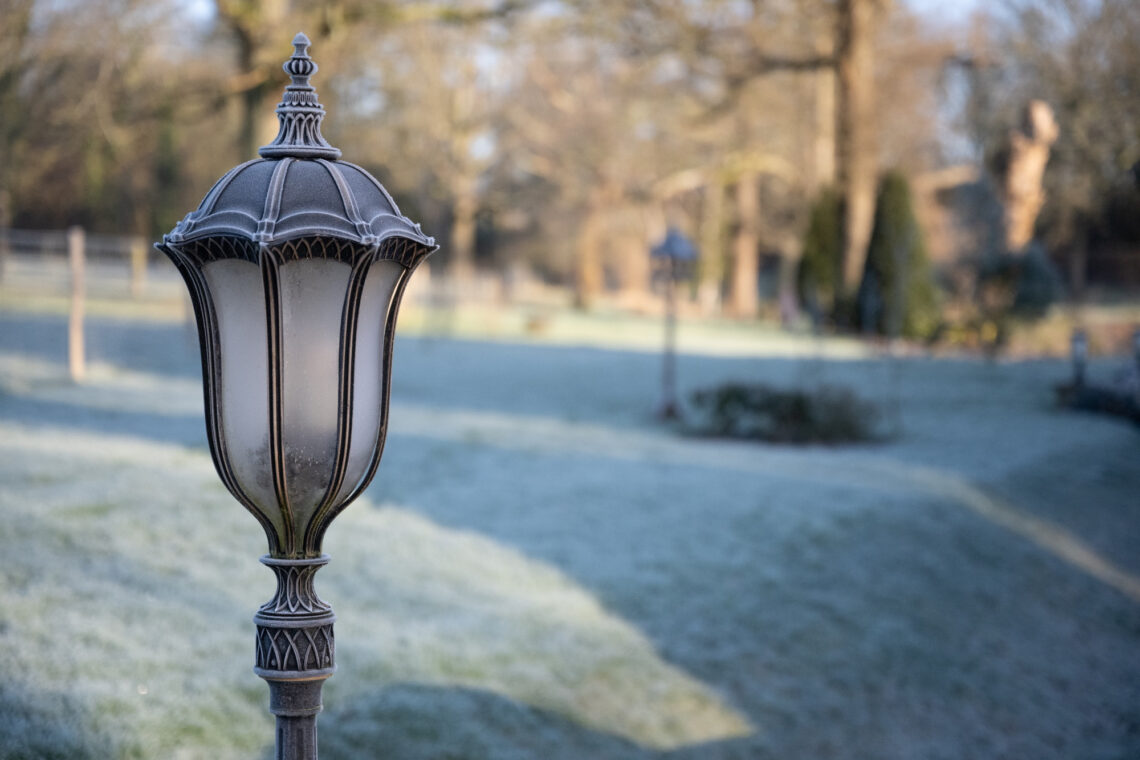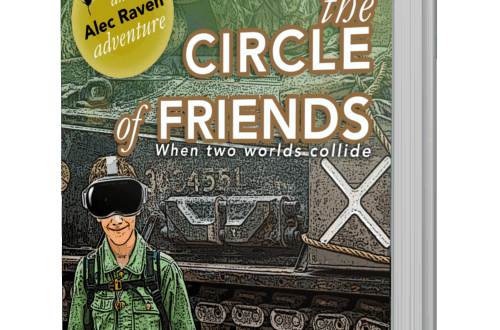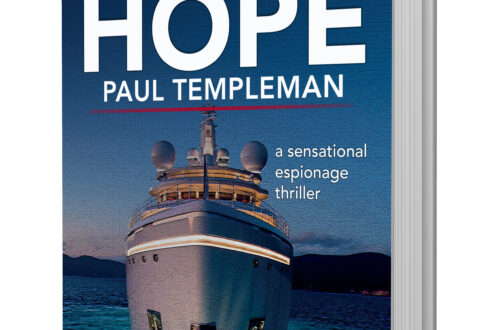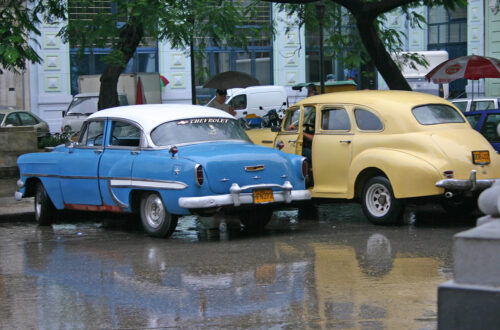They were sitting without touching, side by side on the couch watching the latest AI Studios blockbuster on the wallscreen. It was a Tuesday. Or a Wednesday. Molly was wearing something blue that submerged her in the blue glow of the room.
A headline scrolled along the foot of the screen: The EU had declared war on the GRU. The RPF had joined the EU side. So, it was war again, a war between acronyms. Orlando felt the breath of Molly’s sigh and smelled tea on her breath. That’s when he noticed that her life lamp was glowing amber, and he faced the imminent prospect of a life alone.
A tremor passed through him. He stiffened, reached for her hand but she twitched and moved hers away. She had noticed that he had noticed, but no words passed between them. It wasn’t allowed, after all. Tomorrow she would go alone to the Exit Bureau, and then she would die.
Unless she changed her mind.
On screen the lives of the unliving pursued their usual narrative in vivid high-definition, beautiful people with pre-ordained outcomes. They had jobs and responsibilities, alien to modern life. Orlando struggled to remember when anybody in real life had performed any useful function—and now Molly’s life lamp glowed amber, the strongest, dimmest light in the room. She had made her choice.
“I’ll get some tea,” said Molly, rising. Her voice clicked.
He stroked the sensor in his wrist with his forefinger. He could end it all too, if he chose. They said it was painless, and he would have 48 hours to change his mind. All it took was the pressure of his thumb. But he wasn’t brave enough. Molly had always been the brave one.
Molly re-entered with a swish of her blue garment. “It’s a new tea,” she said. “From Mexico.”
After tasting the bitter Mexican tea, he left Molly alone in the white walled apartment and found himself aimless in the street. He walked for the sake of it. The day had dawned still-born. The sun was golden and fuelled with nostalgic light. He watched the people he passed and paid attention to their life-lamps. He didn’t think they watched him in turn. There were more glowing than ever, but perhaps he just never noticed before. The passers-by had fixed expressions and walked with intent, but he couldn’t think what that intent might be. Where were they going? On the news they said the nation had achieved the highest happiness scores since records began. Every onerous task had been automated—why should they not be happy? Even the war was automated—a robotic pageant.
The whining of an automated street cleaner made him start as it scoured the already spotless tarmac. He remembered how his mother used to sweep the front step with a wooden handled broom.
He turned right onto Trump Parade and realised he would be passing the Exit Bureau. When he reached it the glass façade blinked at him in the sunlight. There was a letter etched in an ornate font on each of the glass doors: “EB”. It could mean anything. He quickened his pace. Maybe Molly would come here tomorrow. And then what?
There was a tree on the corner, surrounded by a low iron fence, which he always stopped to admire. He thought it was an elm but he didn’t know for sure. There was another in Brooklyn he’d once heard about. He liked the intricate weave of the branches and the veined foliage. He reached out a tentative, longing hand to touch the grainy bark, but withdrew at once—it was forbidden.
He looked back down Trump Parade and saw that a ragged, desultory queue had formed at the entrance to the Exit Bureau. He couldn’t see from here their life-lamps. Most of them would be glowing red as their expiry approached. He felt for the sensor in his wrist.
The bright day unfurled with blameless inevitability. Was it still spring or was it summer already? He’d like to take a trip out to the country, but in times of war it was difficult to travel anywhere. One day he would like to go to Mexico. A friend or a one-time lover had been there. They said it was nice.
An empty electric bus rolled past with glowing lights. He missed the smell of gasoline. Even a scrap of litter in the street would give a clue to some human presence.
He walked the streets until lunchtime, then returned to the apartment to find Molly at the table carving without relish at a steak. It was the best lab grown steak—a special treat they had been saving, but Molly was eating it alone. The clink of the cutlery jarred his senses, and the earthy smell revolted him.
“I’ve been out,” he said.
Her eyes were hollow, not red-rimmed. She hadn’t been crying, then. She acknowledged him with an empty stare and chewed at their once-special steak.
A few weeks after Molly’s life and death had been recorded and dispensed with at the Exit Bureau, deposited somewhere in lines of code on a bank of servers, Orlando took to walking down Trump Parade every day, trying not to look at the glass foyer into which Molly had vanished. The lines of people had lengthened for a while, extending around the block, but now had diminished to a paltry few.
He liked to gaze at the tree on the corner and had once dared to touch the trunk. It was disappointing—dry and abrasive—although the act of rule-breaking had given him a tiny thrill.
A bench faced the tree and the empty street with its back to the rubble of a tenement block. Sometimes he took a flask of Mexican tea with him and sat there for hours, looking at the bony limbs of the tree and watching the leaves tremble in the breeze. The tea was no better but quenched his thirst and reminded him of Molly. The dusty building site always left a powdery residue on his tongue.
One day a man in an expensive faux leather jacket joined him on the bench. He shifted in discomfort at the intrusion and threw him an uneasy glance. His life lamp glowed amber. He had an odd, angular face with an incipient stubble on his chin.
“You can have my jacket if you want,” said the man. “It’s quite new. Comfy.”
Orlando was affronted. Why would he want this man’s jacket? Did he look like a man who needs a jacket? Why would he give it away? “It’s a nice jacket,” he replied.
The man shrugged. “Take it. I’ll have no use for it soon.”
“We’re not supposed to… you know.”
The man pointed at his neck where the life lamp bloomed. “Talk about this, you mean?” His eyes glimmered like oysters.
“It’s a good rule. We shouldn’t influence…”
The man gave a harsh bark. “Ha! Who cares? My mind’s all made up.” He began to wriggle out of his jacket.
“Can I ask why? I know it’s not really allowed.”
“You’re not a policeman, are you?” He narrowed his eyes.
“No, of course not.”
“I wouldn’t blame you if you were. Those are the only jobs left for people.”
A rare couple sauntered past, casting them a suspicious glance, then broke into a hurried step. The girl was delicate, like birds used to be, and had a long gait. Orlando noticed she was wearing a scarf around her neck, even though the day was warm.
“She’s covered it up,” observed the man at Orlando’s side. “She could get a fine for that. Look…” he pointed at a surveillance camera high up in the tree. Orlando’s heart contracted. It felt like a betrayal. The man reached across and gave Orlando the jacket. The lining was quilted and had a residual warmth. ‘Here.’
Orlando folded the jacket on his lap, not quite knowing what to do with it. “Thank you.”
“Do you play chess?”
His father had played. The knights’ move perplexed him. “I’m sorry, no.”
“Nobody does, I suppose. Not anymore.”
Orlando worked up the courage he should have summoned to ask Molly over a cup of Mexican tea. “Do you mind if I ask…?”
The man eyed him with a bleak expression. “You’re a strange man. I’ve seen you before, sitting here alone, looking at the ash tree.”
Orlando was distraught. “I thought it was an elm.”
The man stood up. “I’ll be going then.”
“Should I wish you luck?”
The man looked bewildered. “Luck?” he said, and he turned away down the street in the direction of the Exit Bureau.
“I used to teach physics,” he said, over his shoulder.
His life lamp had turned red.
The jacket was plump and still warm in Orlando’s lap, like an abandoned pet.






